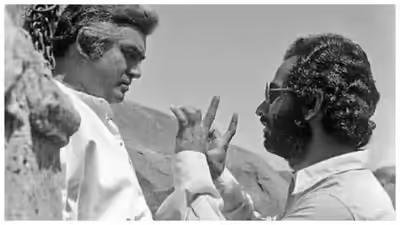

As Ramesh Sippy’s timeless classic Sholay gears up for a grand re-release, the legendary filmmaker revisited one of the most talked-about aspects of the film its climax. In an exclusive conversation with ETimes , Sippy reflected on the circumstances surrounding the film’s release in 1975, a year marked by India’s Emergency, and how that period influenced creative decisions.The film was recently showcased at Toronoto International Film Festival after being restored in 4K version
“At that time, 1975, when the film was released, there was an Emergency on,” Sippy recalled. “So, it was not very easy to have a showdown with the information ministry or the censor board. Therefore, we had to accept the verdict.”
He clarified that while the censors did make changes, they did not “completely take away everything.” “That’s also unfair to say,” he continued. “They tried to reduce the impact of too much violence and things like that. So, I think ultimately, what was released was accepted equally well.”
In the original ending, Thakur Baldev Singh, played by Sanjeev Kumar, kills Gabbar Singh, the menacing dacoit portrayed by Amjad Khan. However, the version released in theaters had a different resolution. “Now when people see the original, I’m sure they like that as well,” Sippy said. “There’s not that much of a difference. It’s just that Thakur Baldev Singh gets his vengeance at the end and kills Gabbar. And in the version released the last 50 years, he has to stop when the police officer comes in and tells him that you are yourself a law officer. So, its not right to take the law in your hand and kill Gabbar.”
Reflecting on both versions, the filmmaker concluded, “That worked just as well with the audiences.” Nearly five decades later, Sholay continues to inspire discussion, proving why its story, performances, and moral dilemmas remain etched in Indian cinema’s collective memory.
Sholay featured names like Dharmendra, Amitabh Bachchan, Hema Malini, Jaya Bachchan and had music by R D Burman.
For clarifications/queries, please contact Public Talk of India at:
+91-98119 03979 publictalkofindia@gmail.com

For clarifications/queries,
please contact Public Talk of India at:

